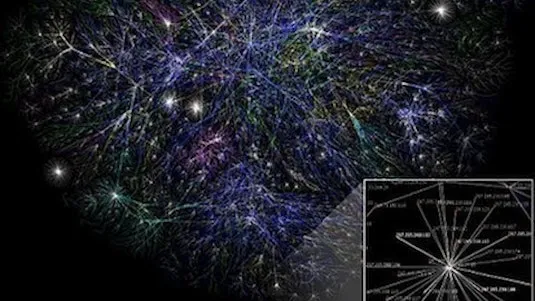
Introduction to Internetworking with TCP&IP 
Enroll now to gain a comprehensive understanding of the Internet and its technologies! ▼
ADVERTISEMENT
Course Feature
![]() Cost:
Cost:
Free
![]() Provider:
Provider:
openHPI
![]() Certificate:
Certificate:
Paid Certification
![]() Language:
Language:
English
![]() Start Date:
Start Date:
On-Demand
Course Overview
❗The content presented here is sourced directly from openHPI platform. For comprehensive course details, including enrollment information, simply click on the 'Go to class' link on our website.
Updated in [June 30th, 2023]
This course provides an introduction to Internetworking with TCP&IP. Participants will gain an understanding of the physical foundation of data transmission based on the functional principles and technologies of local area networks (LANs) and wide area networks (WANs). The TCP/IP reference model, protocols and applications will be discussed in detail. Upon completion of the course, participants will have a comprehensive insight into the complex world of Internet technologies.
[Applications]
After completing this course, participants can apply their knowledge to design, configure, and troubleshoot networks. They can also use their understanding of the TCP/IP reference model to develop and deploy applications that use the Internet. Additionally, participants can use their knowledge to create secure networks and protect them from malicious attacks.
[Career Path]
Job Position Path:Network Engineer
Description:Network Engineers are responsible for designing, implementing, and maintaining computer networks. They are responsible for ensuring that networks are secure, reliable, and efficient. Network Engineers must have a strong understanding of networking protocols, hardware, and software. They must also be able to troubleshoot and diagnose network issues. Network Engineers must be able to work with a variety of technologies, including routers, switches, firewalls, and wireless networks.
Development Trend:The demand for Network Engineers is expected to grow as businesses continue to rely on technology for their operations. Network Engineers must stay up to date with the latest technologies and trends in order to remain competitive. As businesses move to the cloud, Network Engineers must be able to design and implement cloud-based networks. Additionally, Network Engineers must be able to work with virtualization technologies, such as VMware and Hyper-V. Security is also becoming increasingly important, and Network Engineers must be able to design and implement secure networks.
[Education Path]
The recommended educational path for learners of this course is to pursue a Bachelor's degree in Computer Science or Network Engineering. This degree will provide students with a comprehensive understanding of the fundamentals of computer science, networking, and internetworking. Students will learn about the principles of computer architecture, operating systems, programming languages, and software engineering. They will also gain an understanding of the principles of networking, including the TCP/IP protocol suite, routing protocols, and network security.
The development trend of this degree is to focus on the latest technologies and trends in the field. This includes the development of cloud computing, artificial intelligence, and the Internet of Things. Students will also learn about the latest developments in network security, such as encryption and authentication protocols. Additionally, students will gain an understanding of the principles of network management, including network monitoring, troubleshooting, and optimization.
Overall, this degree will provide students with the skills and knowledge necessary to design, implement, and manage computer networks and internetworking systems. It will also prepare them for a career in the field of computer science and networking.
Course Provider

Provider openHPI's Stats at AZClass
Discussion and Reviews
0.0 (Based on 0 reviews)
Explore Similar Online Courses

The Changing Arctic: Present Past & Future

The Fundamentals of Thermodynamics

Python for Informatics: Exploring Information

Social Network Analysis

Introduction to Systematic Review and Meta-Analysis

The Analytics Edge

DCO042 - Python For Informatics

Causal Diagrams: Draw Your Assumptions Before Your Conclusions

Whole genome sequencing of bacterial genomes - tools and applications

How does the Internet work & Networking Crash Course

Rockstar Network Foundations - Free Edition


Start your review of Introduction to Internetworking with TCP&IP